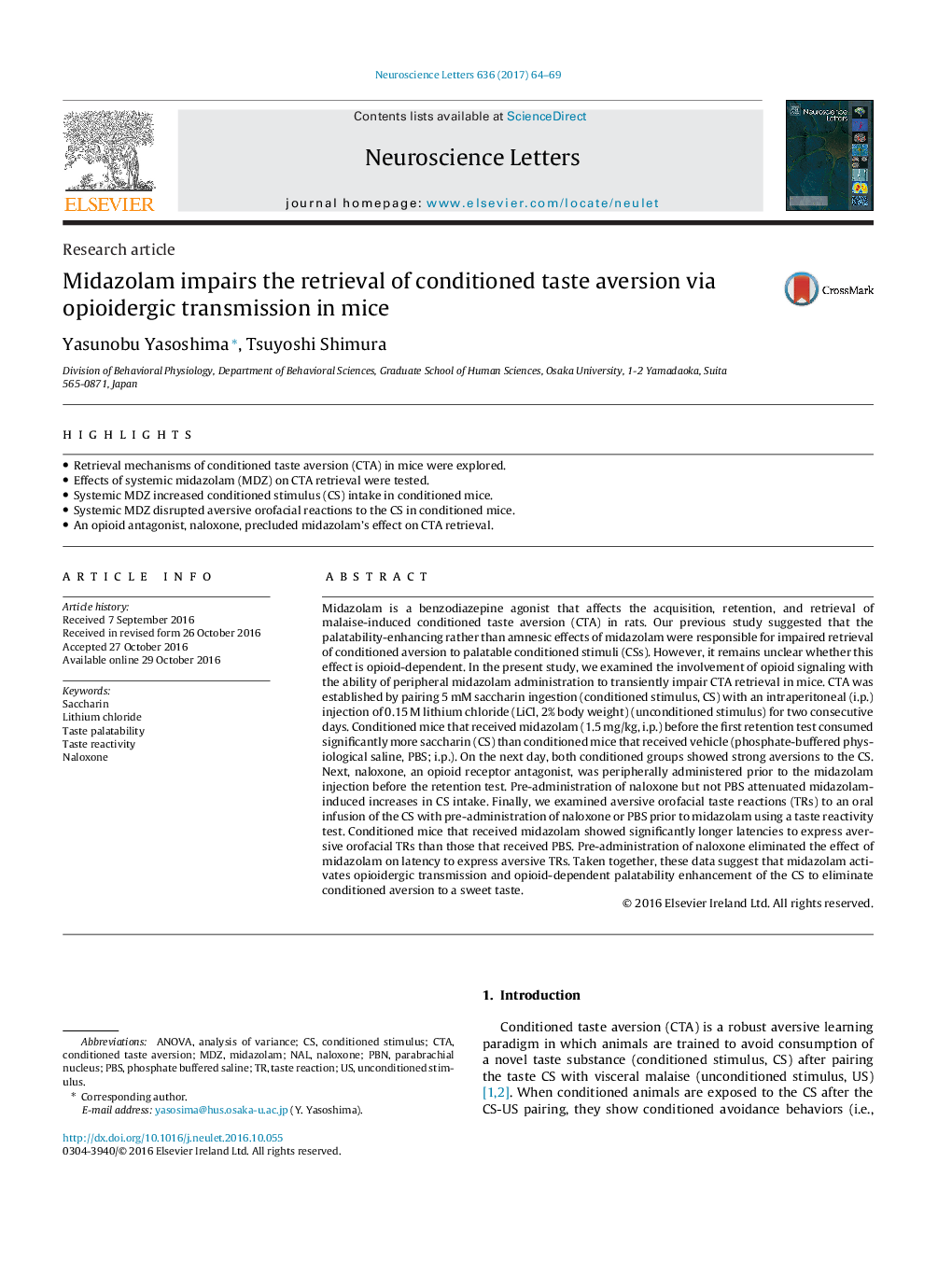| کد مقاله | کد نشریه | سال انتشار | مقاله انگلیسی | نسخه تمام متن |
|---|---|---|---|---|
| 5738719 | 1615063 | 2017 | 6 صفحه PDF | دانلود رایگان |
- Retrieval mechanisms of conditioned taste aversion (CTA) in mice were explored.
- Effects of systemic midazolam (MDZ) on CTA retrieval were tested.
- Systemic MDZ increased conditioned stimulus (CS) intake in conditioned mice.
- Systemic MDZ disrupted aversive orofacial reactions to the CS in conditioned mice.
- An opioid antagonist, naloxone, precluded midazolam's effect on CTA retrieval.
Midazolam is a benzodiazepine agonist that affects the acquisition, retention, and retrieval of malaise-induced conditioned taste aversion (CTA) in rats. Our previous study suggested that the palatability-enhancing rather than amnesic effects of midazolam were responsible for impaired retrieval of conditioned aversion to palatable conditioned stimuli (CSs). However, it remains unclear whether this effect is opioid-dependent. In the present study, we examined the involvement of opioid signaling with the ability of peripheral midazolam administration to transiently impair CTA retrieval in mice. CTA was established by pairing 5Â mM saccharin ingestion (conditioned stimulus, CS) with an intraperitoneal (i.p.) injection of 0.15Â M lithium chloride (LiCl, 2% body weight) (unconditioned stimulus) for two consecutive days. Conditioned mice that received midazolam (1.5Â mg/kg, i.p.) before the first retention test consumed significantly more saccharin (CS) than conditioned mice that received vehicle (phosphate-buffered physiological saline, PBS; i.p.). On the next day, both conditioned groups showed strong aversions to the CS. Next, naloxone, an opioid receptor antagonist, was peripherally administered prior to the midazolam injection before the retention test. Pre-administration of naloxone but not PBS attenuated midazolam-induced increases in CS intake. Finally, we examined aversive orofacial taste reactions (TRs) to an oral infusion of the CS with pre-administration of naloxone or PBS prior to midazolam using a taste reactivity test. Conditioned mice that received midazolam showed significantly longer latencies to express aversive orofacial TRs than those that received PBS. Pre-administration of naloxone eliminated the effect of midazolam on latency to express aversive TRs. Taken together, these data suggest that midazolam activates opioidergic transmission and opioid-dependent palatability enhancement of the CS to eliminate conditioned aversion to a sweet taste.
Journal: Neuroscience Letters - Volume 636, 1 January 2017, Pages 64-69
